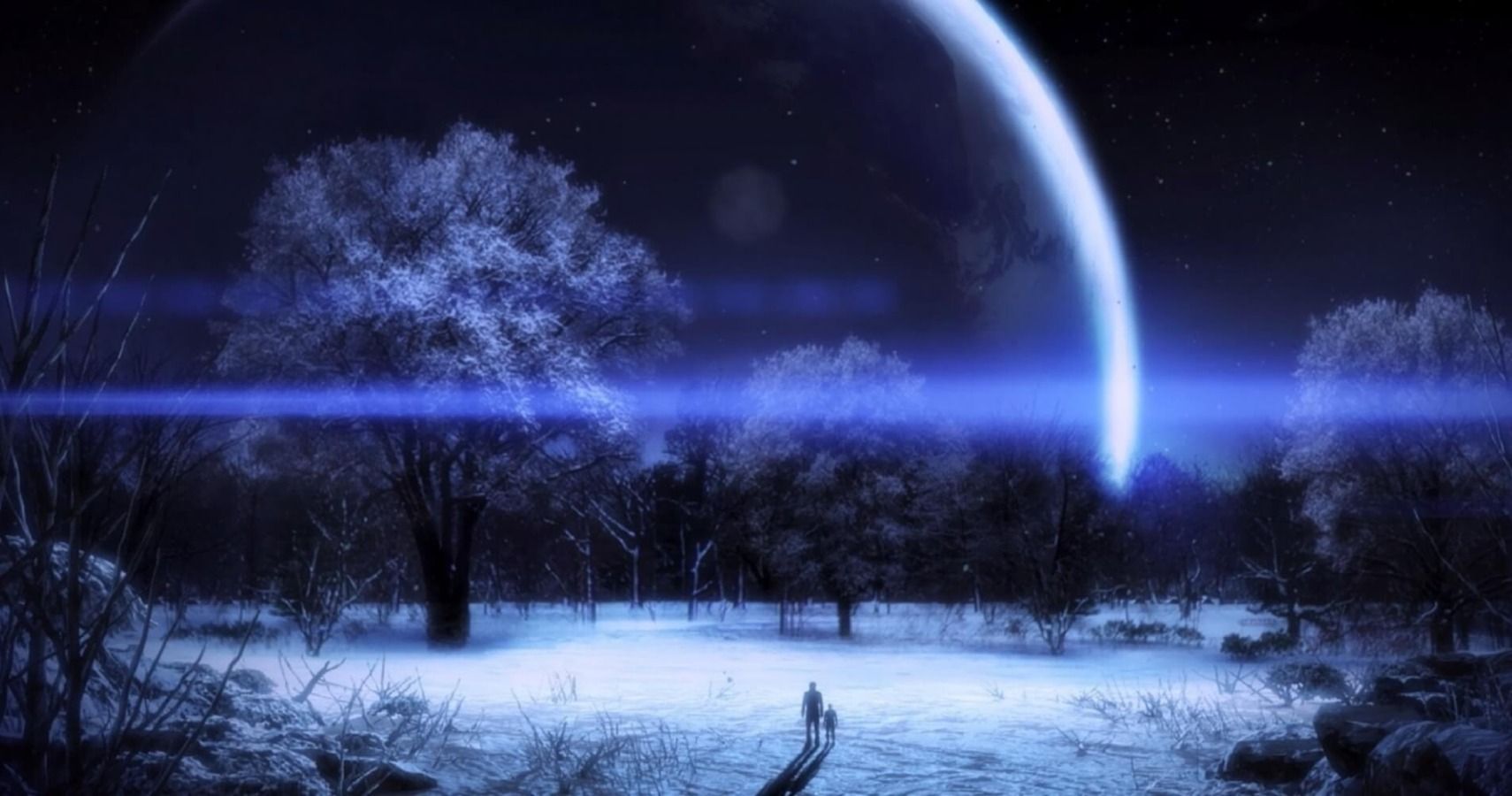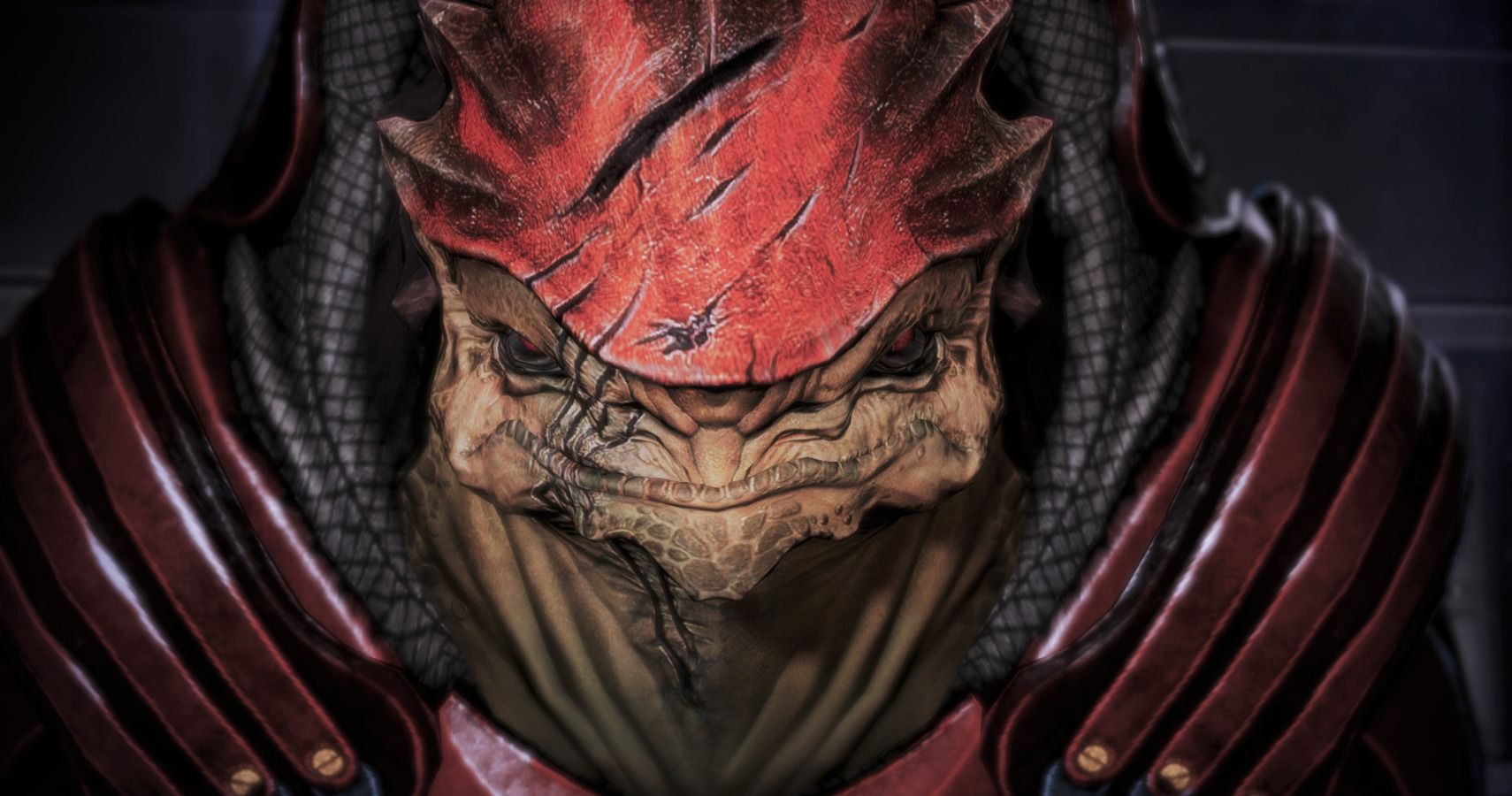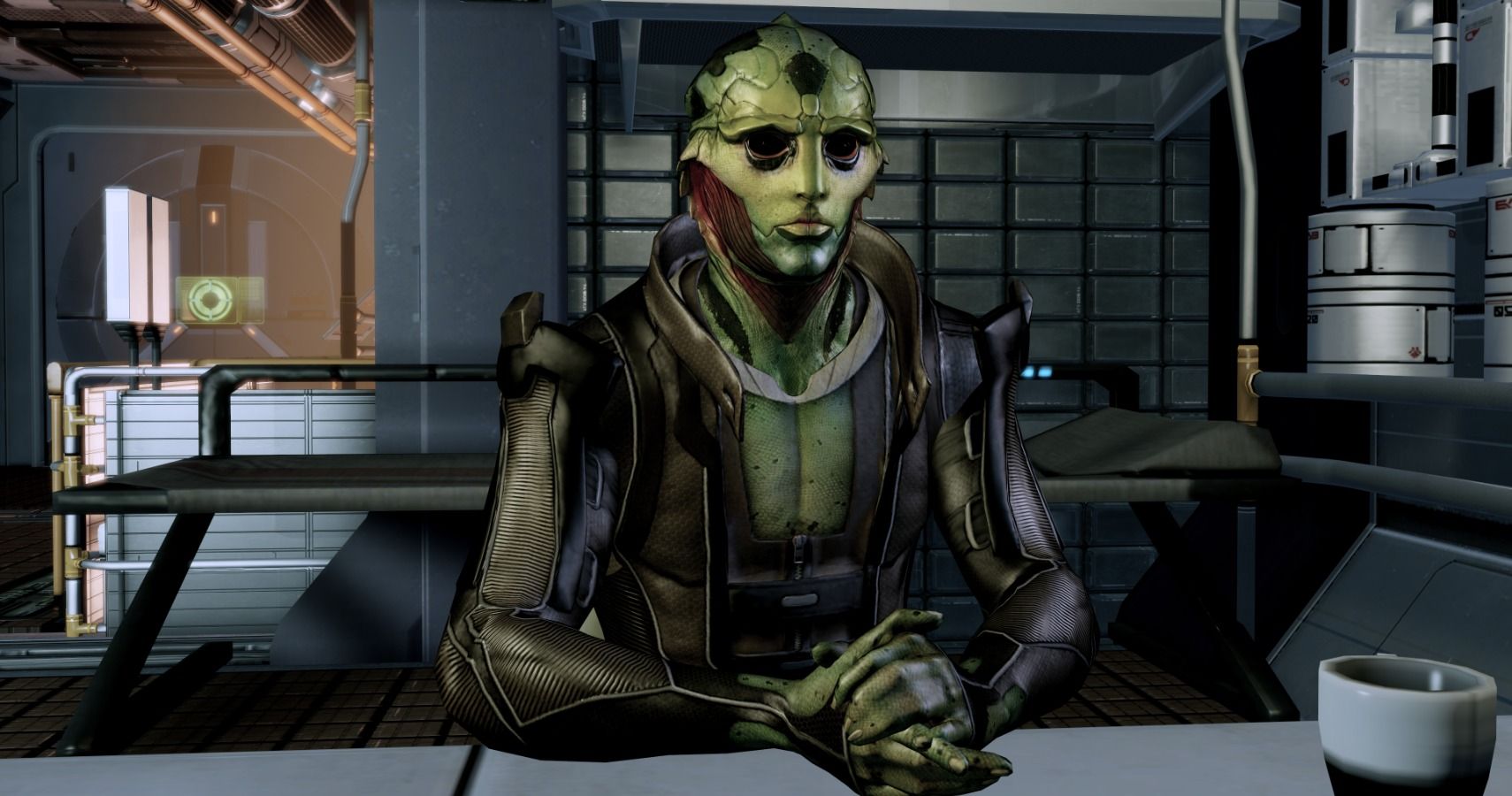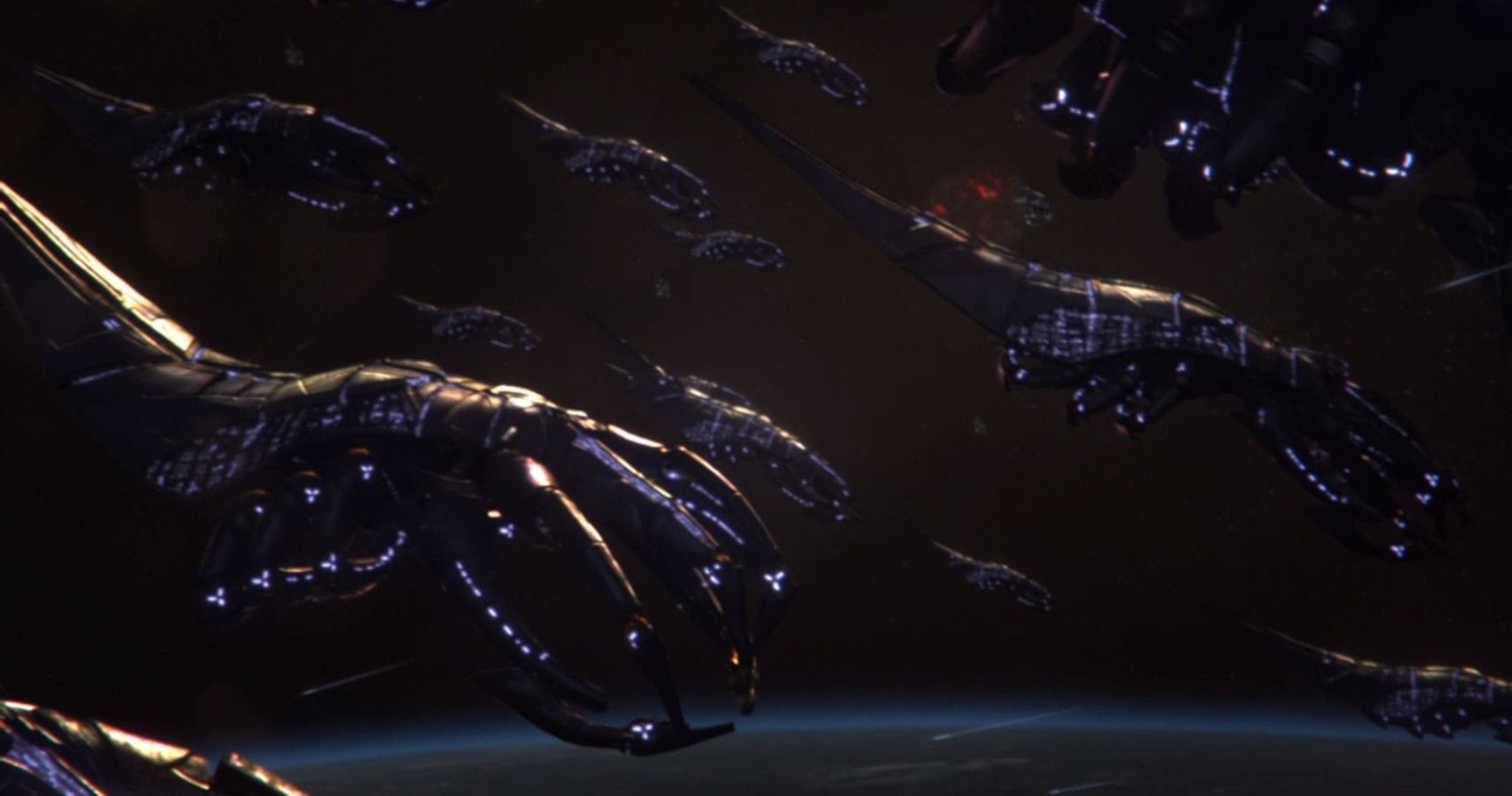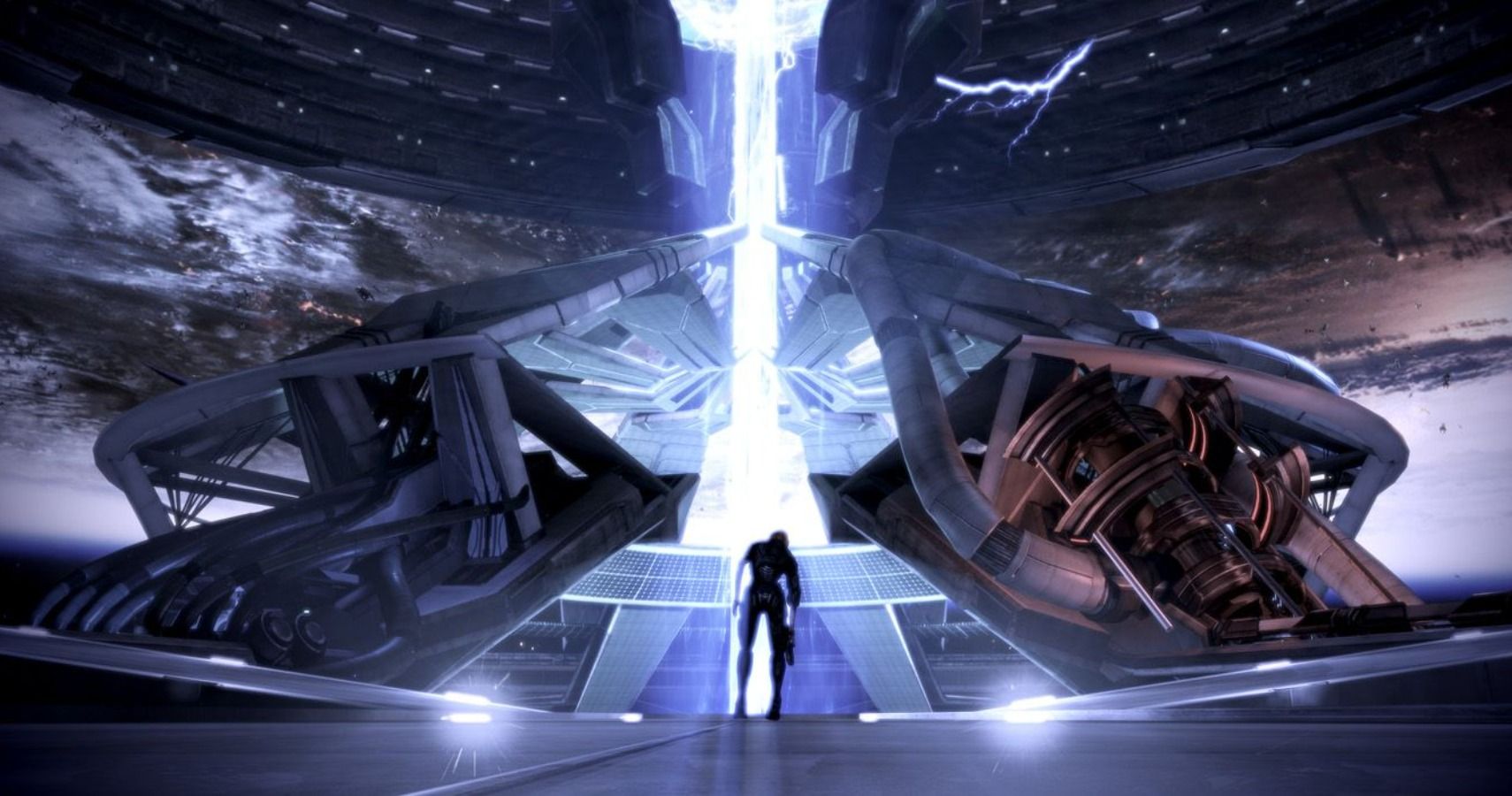Writing an ending for Mass Effect 3 that pleased everyone was never going to be possible. BioWare was approaching the close of what had become one of the most beloved and established trilogies in the history of games, and so it was only natural that some people were going to be disappointed. But when Mass Effect 3 finally launched in 2012, the hypothesis that it’s impossible to please everybody violently imploded, with fans all over the world inciting outrage towards what they deemed to be a bit of a cop-out.
It’s important to qualify this: Mass Effect is known for making excellent use of cause and consequence. Spend too long on the fence between right and wrong? Wrex is going to die before the first game even ends. Urdnot Wreav then replaces him, opening up unique possibilities in later games - if Wrex dies in Mass Effect, you can save Mordin in Mass Effect 3, because Wreav is stupid enough to fall for an elaborate ruse. Wrex, on the other hand, is far too bright. Over the course of the next few weeks, he slowly pieces it all together and realizes that the Genophage is still alive and well. Now you’ve made an enemy of one of the best and smartest krogan in the galaxy.
These trilogy-spanning permutations operate across all kinds of relationships, meaning that your playthrough and mine were probably completely different to one another. But at the end of Mass Effect 3, right at the climax of a story people spent five long years participating in, all of that seemed to go out the window. You were given three options to deal with the Reapers: Destroy, Control, or Synthesis. Each of these choices was also partially determined by the amount of war assets you’d managed to amass by the end of the game. In almost every permutation of the Mass Effect 3 ending, Shepard dies.
This wasn’t always the case. According to Mass Effect 3 writer Chris Hepler, the end of Shepard’s story could have been radically different.
Hepler started working on Mass Effect right at the beginning. Although he wasn’t formally part of the team yet, he did additional design, chipped in for playtesting, and offered a fair amount of writing feedback during development of the first game. He had a much more active role on Mass Effect 2, writing the Codex entries, the Galaxy Map, and spearheading the Cerberus Daily News initiative. By the time Mass Effect 3 rolled around, Hepler was writing EDI, Thane, Citadel missions, and was generally considered to be the project’s “loremaster.”
“The ending relies on space magic, and the lead writer, lead gameplay designer, and executive producer all just embraced that and owned it from the get-go,” Hepler tells me. “‘Any sufficiently advanced technology’ and all that. They wanted and got a really big decision that affects the whole galaxy. If you give it a moment's thought, none of the three options are perfectly moral or the ‘right’ answer for everyone. Destroy may not solve the problem of AI and organics; Control rewards the Reapers; even Synthesis, which is harder to get than the other two and sounds like it'd be permanent peace, basically violates the entire galaxy's bodily autonomy without consent. So that part, I think, works.
“Did it satisfy the fans? Hell, no, not at first, and I found a lot of the criticism to be legitimate. The Extended Cut gave us a second chance to make an ending that acknowledged many more of the players' choices, and was about as good as we could reasonably make given the decisions we'd already made. I felt a lot better about myself and us as a team after the EC came out.”
Hepler explains that fans had observed several hints throughout the trilogy that pointed in completely different directions. For example, there are aspects of the lore that actually lean towards the Citadel species allying with the Reapers in order to collectively tackle a dark energy anomaly, as opposed to the Reapers remaining as the Big Bad right up until credits roll. Hepler confirms that there are explicit lore details that lean into this idea, but that he never personally heard about capitalizing on them. Remember, this is coming from the Mass Effect loremaster - if he says there is lore to back up a dark energy anomaly that only the Reapers can save us from, it certainly exists.
“Now, what would I have done?” Hepler asks. “I wouldn't have done space magic at all. I planned to write three Codex entries on the Crucible rather than one, reflecting on what scientists think it is at first, what it appears to be once construction has really made progress, and a third detailing how it will kill the Reapers, readable right before you return to Earth.”
Hepler explains that he wanted to take inspiration from Nancy Kress’ novel, Probability Moon, in order to have the Crucible use the strong nuclear force as a weapon. Kress’ superweapon is designed to create a massive burst of energy that is completely harmless for objects that have a low atomic weight, like organic flesh made of carbon chains. This means that the vast majority of Citadel species would be virtually unaffected by a blast from this weapon.
Objects with a much higher atomic number, however, would be annihilated by the pulse. This weapon is constructed in such a way that it emits life-killing radiation for anything made up of heavy metals. “So cybernetic creatures like the Reapers and husks would have their organic parts fried because they're right next to the heavy metals, but the organic creatures a safe distance away, like a civilian population, would be just fine,” Hepler says. He also notes that there is room for casualties here - if organics were on hi-tech spaceships, for example, they could get caught in the blast radius due to their current surroundings, meaning space navies would also be at risk.
“The rebuilt Shepard, who had a fair bit of cybernetics, would die heroically, but that was always likely to be on the cards. In talking with Ann Lemay, another writer on the project, we theorized that the metal most likely to be the atomic weight cut-off-point was niobium, which today is used in piercings and surgical implants because it doesn't rust and you can embed it in flesh without ill effects. It's even blue when exposed to oxygen, like the glowing blue husks we've been fighting since [the first] Mass Effect. So it would make sense as a building block for the Reapers and their ultimate weakness.”
So, what happened? Unfortunately, Hepler never got to pitch his ending. The design leads moved pretty fast with their Destroy/Control/Synthesis trifecta, to the point that the whole premise had been approved before Hepler even got around to finishing his second Codex entry. As a result, he hadn’t got a full description of how this pertained to the entire galaxy yet - although looking at it now, it could have borrowed from the best bits of each ending. The Reapers would be neutralized, but the tech would be there. Given that Mass Effect is largely about the coexistence of humans and cybernetic creatures, it would also have had an impact on other aspects of the universe - what would happen to EDI?
“I [also] had some concern that Nancy Kress might notice and sue us if I didn't do my homework,” Hepler says. “And there was no time to do that homework, which would be me telling all the leads to hold off for a week while I exchanged a crap-ton of emails with my subject matter experts. ‘Sufficiently advanced technology indistinguishable from magic’ was far easier and had much more project momentum.
“I recycled some of the strong-force-as-a-weapon tech into the Reaper infantry weapon, the Blackstar. In retrospect, I wish I'd spoken up more, or thought it all out faster, but them's the breaks.”
As well as Hepler’s idea for a superweapon - which obviously never made it into the final game, despite sounding as if it had a lot more hard science behind it - Hepler is a big fan of the popular Indoctrination Theory. However, he was pretty open about the fact that this wasn’t something BioWare consciously designed.
“The Indoctrination Theory is a really interesting theory, but it's entirely created by the fans,” Hepler says. “While we made some of the ending a little trippy because Shepard is a breath away from dying and it's entirely possible there's some subconscious power to the kid's words, we never had the sort of meetings you'd need to have to properly seed it through the game.
“We weren't that smart. By all means, make mods and write fanfic about it, and enjoy whatever floats your boat, because it's a cool way to interpret the game. But it wasn't our intention. We didn't write that.”

